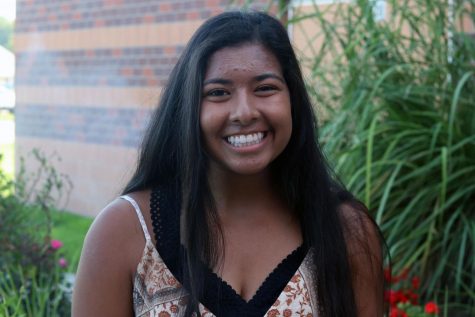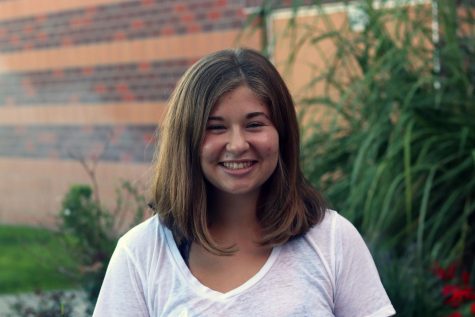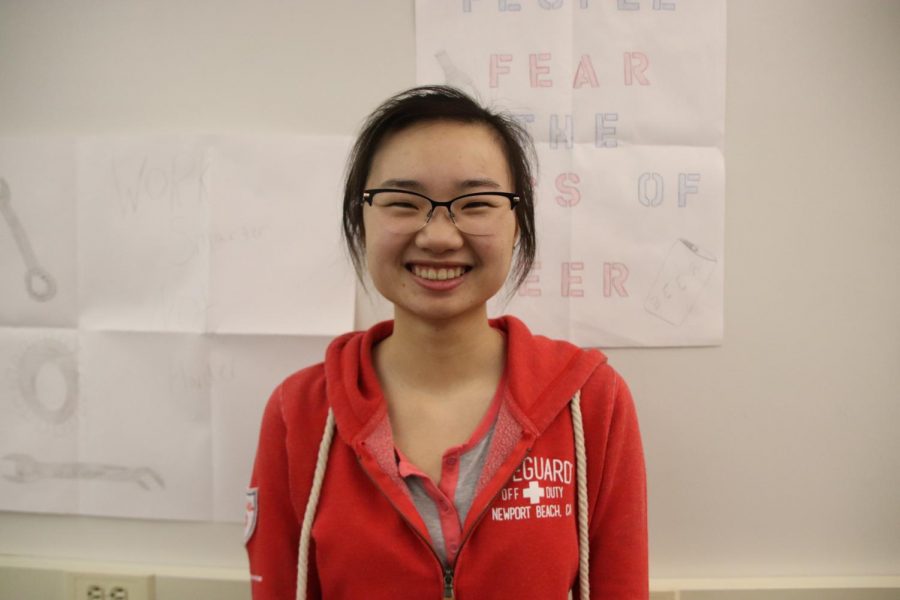Sentiments from the second child
How China’s one child policy affected a North Platte High School junior
Junior Cailey Nutt poses for a picture. “People look at me differently because I’m not American and I look different,” she said.
In 1979, China’s one-child policy was designed to reduce the growth of population. The law stated that couples in China were only allowed to have one child or face the possibility of fines, sterilizations, or forced abortions. In 2002, junior Cailey Nutt may have been the second child.
The law was enforced until 2013, when there was a relaxation of the policy, and was completely abolished in 2015, and Chinese couples are now allowed to have more than one child.
Although the law is no longer in place, Nutt’s life remains the same. “My birth parents gave me away to an orphanage, and I was traded with a bag of flour as an offering,” she said. After living in the orphanage for a few months, Nutt was adopted by her parents, who lived in Curtis at the time. Nutt’s parents also adopted her younger sister from China. “My sister was adopted through the same process as me, but from a different province,” she said.
Although she grew up in Nebraska, Nutt still feels like people look at her differently. “They get that I’m Chinese and that my parents aren’t, and I consider myself American, but I also like to celebrate Chinese things,” she said. Nutt celebrates Chinese New Year with her family, as well as her “Gotcha Day” which is the day that her parents adopted her.
During this time period, Chinese couples were more prone to keep children that were boys rather than girls to carry on the family name, so many parents gave up their first child if it was a girl. Nutt is not sure whether or not she has any siblings or anything about her birth parents. ”It is likely that I was the second child and they didn’t want me because of the law, or I was the first one and they didn’t want me because I was a girl,” she said. She isn’t sure how her life would be if this law was never put in place. “I could be living with my parents, but they also could’ve abandoned me, because I’m still a girl, and they still want boys,” Nutt said.
She’s not entirely sure if the law worked out for the better. “For me, yes. Maybe for others, no. Some people might still live there, and still grow up there. They might never get to know who they are or where they’re from,” she said. However, she’s happy the law is abolished now. “Kids can live with their families now and never have to go through not knowing who they are.”
Nutt doesn’t know if she ever plans on meeting her birth parents. “It interests me, but they put me in the orphanage to have a better life,” she said, “because that’s what they wanted me to have.”

I am a senior and in my 4th year of journalism. I am right handed but my mom is left handed.

I'm a senior, breakfast food enthusiast, and journalism lover. This is my third year on the Bulldogger staff. Fun fact, I am the youngest person in the...

